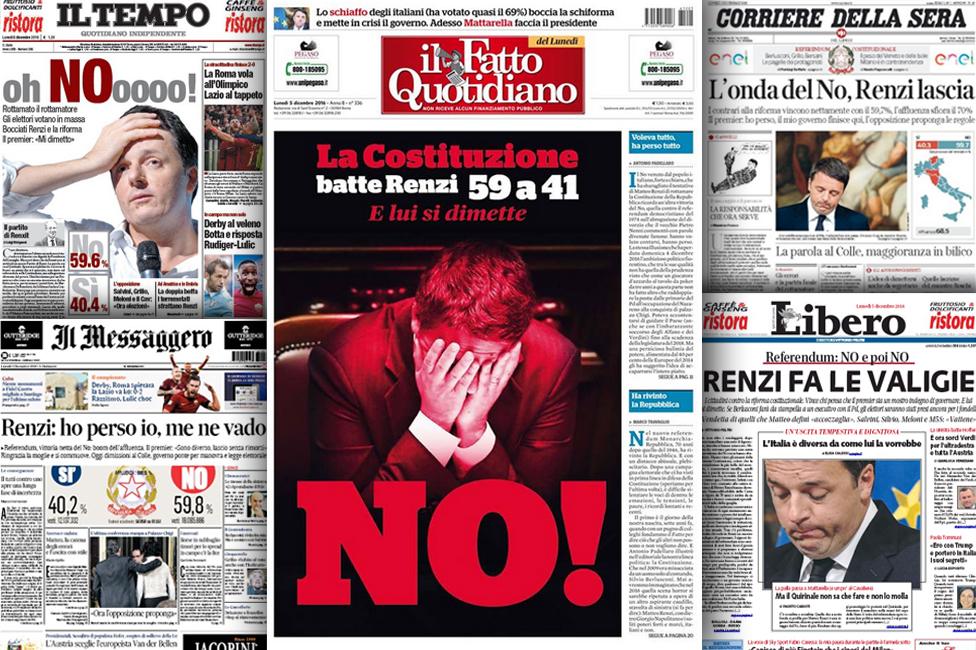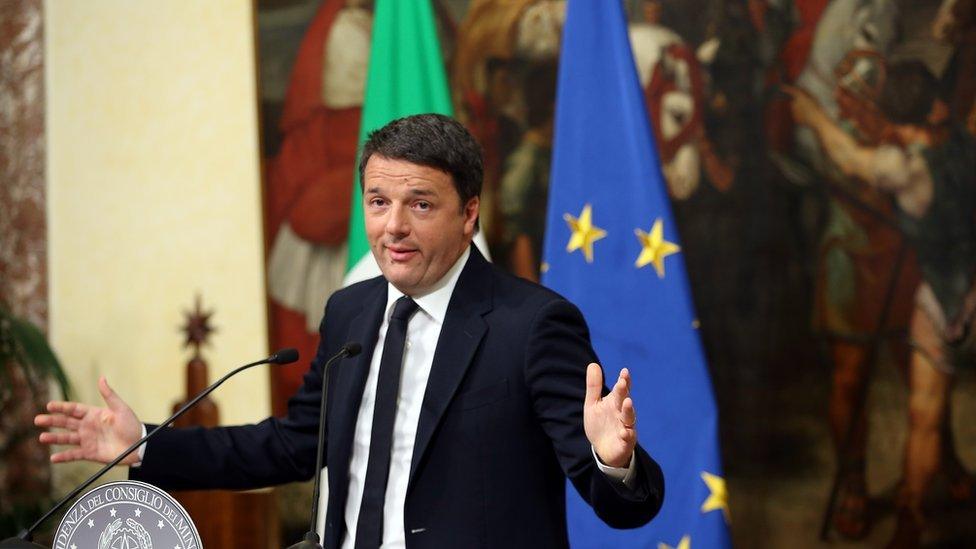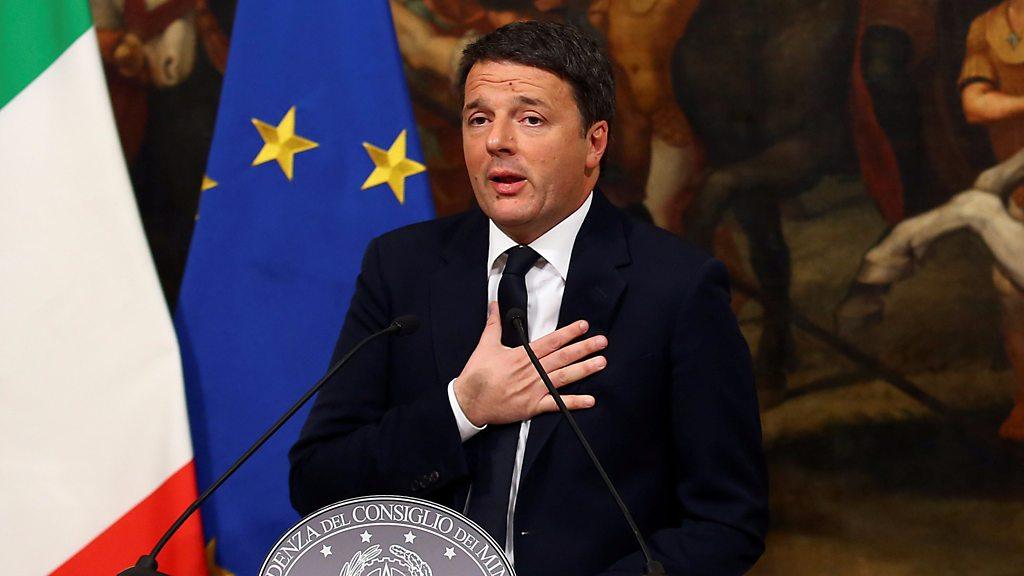Italian press: 'Popular revolt' brought down Renzi
- Published

Italy's front pages reflect the scale of Mr Renzi's resounding defeat
Italian papers have blamed Prime Minister Matteo Renzi's referendum defeat on what they see as a "popular revolt" triggered by falling living standards.
They say it was dissatisfaction with the cost of living, rather than opposition to his proposed reforms, that prompted people to turn out to vote in large numbers.
La Stampa, external sees this as a sign of the same popular discontent that gave rise to Brexit and the victory of Donald Trump in the US presidential election.
Its commentator, Maurizio Molinari, says: "The electorate has revealed the existence in our country of a people in revolt who have rejected the reform of the constitution, the prime minister and the government establishment."

Supporters of the "No" campaign celebrate their victory
Molinari continues: "To get Italy going again, we need more than just a new government - we need to respect the people in revolt and respond to their demands."
Mario Calabresi, writing in La Repubblica, external, agrees. He says that the outcome of the referendum had little to do with people's views on constitutional reform, "but was dictated by anger, frustration and discontent - it was the vote of those who say No to unemployment, insecurity, uncertainty and poverty".
'Strong signal'
Likewise, a commentary by Aldo Cazzullo in Corriere della Sera, external says that one of Mr Renzi's main mistakes was that he "overestimated the consent [of the Italian people] to his reforms and underestimated social hardship".

Mr Renzi vowed to step down after Italian voters rejected his proposed constitutional reforms
The communist daily Il Manifesto adopts an upbeat tone, claiming that the result is a victory for the left over the centre-left as represented by Mr Renzi.
Far-left parties and the biggest Italian trade union, the CGIL, campaigned strongly against Mr Renzi's proposed reforms, saying that they threatened to dilute the social contract that underpins the constitution.
Il Manifesto, external's commentator, Norma Rangeri, links Mr Renzi's defeat with the victory of Alexander Van der Bellen in the Austrian presidential election, saying that "after the splendid Austrian vote, it sends a strong signal to the whole of Europe that it is receiving a message of confidence in institutions and parliamentary constitutions from Vienna and Rome".
Rangeri concludes that "the full and overwhelming victory of the No vote is the result of a great popular participation, a turnout that goes beyond the confines of the referendum".
BBC Monitoring, external reports and analyses news from TV, radio, web and print media around the world. You can follow BBC Monitoring on Twitter , externaland Facebook, external.
- Published5 December 2016

- Published1 December 2016

- Published5 December 2016